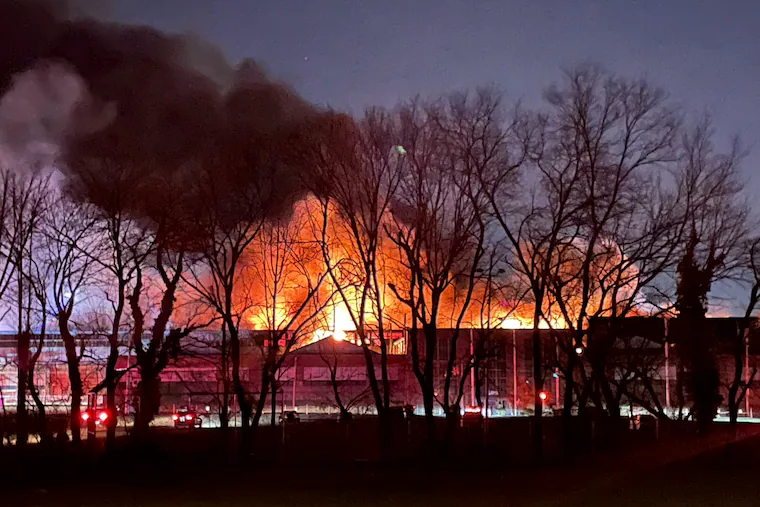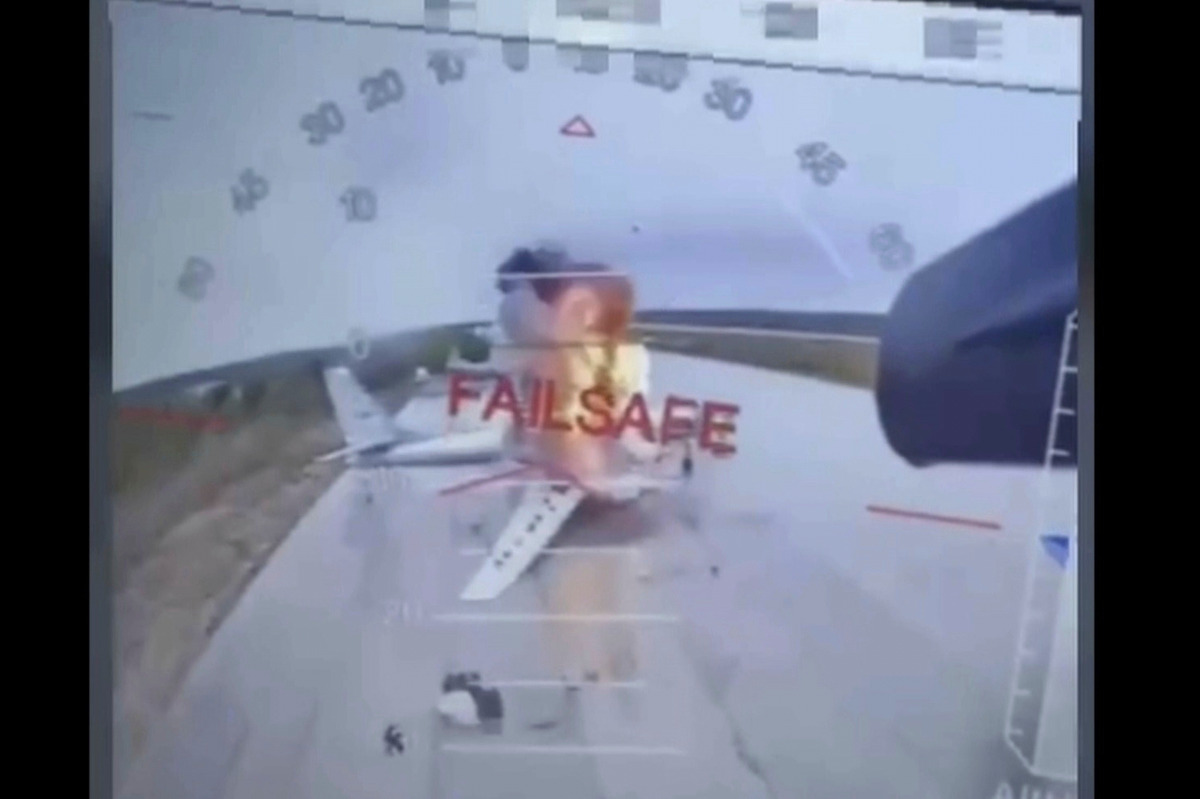
SPS Technology, owner of the century-old aerospace fasteners factory in Abington that lit the sky for miles when it burned in February, plans a smaller, more automated production center at the demolition site, company officials told a crowd of more than 100 at a community meeting Thursday.
Abington commissioner Matt Vahey, who represents the neighborhood around SPS, said he supports the plan: “SPS wants to build to our current code, a lot further back from the street, with more green space.”
He said that fighting the plan would mean a gamble that the property could be an eyesore for years and that a new owner could be worse. “We should be proud to have SPS in our backyard.” Commissioner John Spiegelman also spoke in support.
Residents lined up to praise the once family-owned Standard Press Steel Co.’s past role as an employer and neighborhood benefactor and to complain about traffic detours during the demolition.
SPS employed around 1,000 before the founding Holloway family heirs sold it to Oregon-based Precision Castparts in 2003. Precision, including SPS and other businesses, were bought by Nebraska billionaire Warren Buffett’s Berkshire Hathaway in 2016. Buffett later said he had overpaid, wrote off a third of the purchase price as a loss, and sought to cut costs.
The number of workers at SPS in Abington had fallen to below 500 when the plant burned. SPS officials say they plan to employ around 200 at the new plant, after adding robots and other automated equipment to replace destroyed machines. The company might add more in the future if SPS wins more contracts.
Nearly every airplane has SPS products
SPS veterans like to point out that jets, ships and missiles rely on the specialized screws and bolts they design and build.
“Not another company in the world can do what we do. They’ve all tried,” Dan Gear, vice president and general manager of SPS, told the crowd.
“Nearly every airplane in the sky has SPS products,” he said — not off-the-shelf hardware-store pieces, but 700 different high-tolerance corrosion-resistant bolts, wrenchable and self-locking nuts, and other fasteners that hold engines, wings, landing gear, tail assemblies or other key systems in place on Boeing 737s, Lockheed Martin F-35 fighter jets, Navy submarines and aircraft carriers, and other complex machines.
The new plant will total 350,000 square feet, a little more than half the 650,000 square feet of the previous complex. It will be packed with robotics and other new systems costing hundreds of millions of dollars. Its walls will sit an extra 136 feet back from Highland Avenue and also farther from neighboring residential properties and playing fields
Power at the plant will include solar panels supplied by Berkshire Hathaway’s energy subsidiary.
A new look
Renderings of the future plant showed a brick and glass facade, outdoor gathering areas, and other amenities.
“I don’t want to build a manufacturing plant that looks like a manufacturing plant,” Gear said. “People driving past won’t know it is an aerospace plant.” Lighting at night will be “a soft glow.”
The company’s collection of historic items, including bullets the factory made in World War II, were spared from the fire and will get a new home onsite.
Gear said his supervisor at Berkshire’s Precast Castpart Corp. division, currently headed by Mark Donegan, had ordered him to build “a world-class, state-of-the-art manufacturing facility where people can come from all over the world to Jenkintown, Pa., and see a plant that is like nothing in the world.” SPS refers to the plant as Jenkintown, though it’s in neighboring Abington.
He said new equipment, including fans, should be less noisy than the droning sounds that sparked neighbors’ complaints.
The plant is expected to open in 2028.
‘No foul play’ in fire
Gear thanked the 400 firefighters and other emergency responders from dozens of local volunteer companies who showed up to limit damage from the blaze. At the time, the company’s sprinkler system was down, and a temporary fire watch was in place.
“The first call we got the day after the fire was from Boeing. They were afraid we were going to shut them down,” Gear said. General Electric paid for a tent that continues to shelter workers at the site.
He said federal FBI and ATF inspectors had found “no foul play” in connection with the fire, which started in SPS air compression equipment. State officials have said that despite the presence of dangerous chemicals, drinking water and air quality weren’t affected by the fire.
Gear said investigators were still working on the specific causes of the fire seven months later.
On Friday, Abington fire marshal Chris Platz issued a statement that the February explosions and fire were caused by “a failure of the compressed air system infrastructure.”
While investigators “were unable to determine the specific failure,” Platz said they concluded it was accidental, with no indication it was intentionally sent or a result of SPS negligence.
Gear said 80% of the site was “burned down” and then leveled over 3½ months by contractors at American Integrated Services Inc., with the wreckage sorted and sent to landfills.
SPS salvaged about 20% of its metal presses and other machines and set them up at 200,000-square-foot warehouse near Langhorne alongside newly purchased equipment. Workers resumed limited production there after SPS signed a five-year lease.
Other Abington work was sent to SPS plants in California and Brazil and other places.
Workers’ concerns
Darby Doyle, business representative for Plumbers Local Union 690 and a leader of the Montgomery County building trades’ union group, called on Gear to build the new works with some of the 500 union electricians, plumbers, steamfitters, and other local members he said in the Abington area.
“It’ll be great when they’re coaching Little League across the street to be able to say, ‘We built that,’” Doyle said.
Gear said SPS intends “to build with local people” but made no commitment on whether the company will use union contractors.



